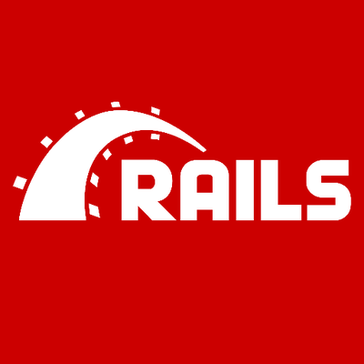

Ruby On Rails Pricing Overview
Ruby On Rails Pricing Reviews
I been using Ruby on Rails for years. I am a senior level professional software developer. I was doing JAVA before. I can tell you that Ruby is much more productive than JAVA. More importantly there is a way of Rails, if you follow the convention there is less room for errors. I like Ruby on Rails it is : - reliable with huge community - productive - creative - easy to start - cost effective
Well there is limitation of it. Currently it is in a strange position with JS on the front-end. Mainly because most the developers in the Rails team are kind of old school and still try to do web page instead of web app. Nowadays i see Rails more of a API server side than page rendering framework. So to sum it up: - strange relation with front-end JS development at the moment
I been working in all sort of business really. Both startup and enterprise. Ruby on Rails is really a cool framework it definitely more productive than many other choices. - low cost - more productive - small team - well maintained projects - good culture in the community
The Ruby language is truly the best feature of the Rails framework, but the contribution of David Heinemeier Hansson has been to exemplify the idea of 'convention over configuration'. When working in Rails, there is almost always a clear and efficient path to a solution (within the confines of web applications, at least). This makes Test-Driven Development very attainable, since the components needed for a new feature are easily worked out before the feature is built. This, in turn, expedites the creation of new applications and the maintenance of existing ones because it permits safe assumptions and expectations about organization.
Sometimes the creators of Rails take convention-over-configuration a little too far, resulting in undesirable libraries and limiting patterns being included with the framework. This, I feel, has made some trending concepts and architectures (SPAs, for example) unnecessarily complicated to implement without relying on other technologies.
Recently, my company required a RESTful JSON API for an Angular application. Adapting the existing application to this use was a breeze due to consistent patterns and organization. I have repeated this experience with numerous feature requests, and picking up where someone else has left off is often trivial.
The ruby language is rich and natural. The rails framework made development so easy and fast.
It has become way to heavy and way too much "magic" behaviors that have to be learned.
eCommerce. Faster and less costly development with simplified deployment and host.
It allows us to quickly build out, test, and iterate on features. This is enabled by convention over configuration, a great open source community with a ton of gems, and easy-to-setup hosting platforms.
Community gems are unreliable and often become outdated and abandoned by the original developers. Ruby is slow and scaling to meet the needs of a growing user-base is expensive.
Call tracking, intelligent routing, and analytics. We were able to build out a product and bring it to market very quickly for minimal cost.
Ease of development. You can setup a quick API and website pretty easily with minimum efforts. The ruby gem network is vast and help you do things even quicker. The MVC concept is pretty strong here and helps you avoid design decisions
Sometime encapsulation comes on the expense of performance.
Running API, website, background tasks - all done with rails. Easily extending old functionality.
Rails is an old enough framework, but it's still a good choice for nowadays project. It's itself a collection of best practises. Not to mention it has a big ecosystem. Both of them can boost up the projects for startups. Even you can not find the gem to solve your domain problem, you can build your own wheel with Ruby (with some low level gems), it's a joy journey. Rails also inspires many other frameworks, that means if one day you switch to another language & platform, you can still use some of the experiences. For example, you can reuse 80% of the experience in Phoenix framework if you care about concurrency.
Rails is not for newbies. It's productivity based on "I'm experienced about web and I know Rails has solved lots of tricky problems", but not "I have less experience so I need a framework to help me to keep away from those details". It's not actually a disadvantage. But be careful not to shoot your feet. A real problem is, you need to judge what to use and what not to use from a lot of gems. Some of them are awesome, but maybe not very fit for your project. You can build a prototype quickly by using lots of 3rd party gems, but later on you may find the code is hard to modify and upgrade. Choose wisely for Rails built-in parts and 3rd party gems. Rails is extracted from Basecamp, that also means some of the solutions are affected by Basecamp. Many people like to call them the "Rails way". It's not good for everyone, so you still need to judge.
Frankly speaking, Rails and most of other web frameworks are just "shells". You just build a web server to handle requests and delegates your real business layer. But Rails and it's ecosystem gives you a very convenient way to integrate many things you want. Because many tools care Rails integration. Recent years I use Rails to build APIs. And I found I can still use many things from Rails. The ActiveRecord is awesome, for more complex SQL I can use squeel gem, for full-text search I can integrate Elasticsearch, etc. API isn't just a data layer, you still care about authorization, service layer, background jobs, and more. Rails make it easy to do such things. I even think it's better without it's view layer.
There is a wealth of documentation and community support out there for getting up to speed with Ruby on Rails (RoR) quickly. Most of the ideas you can think of for a new application already have gems / plugins / tutorials that show you exactly how to get what you want without writing a lot of code. In many cases, you can write some code that is your best guess as to how something should work, and it will cover 80% of the cases you need to handle, thus giving you a minimally viable product (MVP) you can bring to market quickly.
Although you can get 80% of what you want quickly, the remaining 20% takes 2x to 4x more time to get than with any other solution we've tried. Both Ruby (the language) and Rails (the framework) were written assuming that they would be used only very specific ways. As your project -- no matter what project it is -- grows, those assumptions no longer fit your use case, and you find yourself fighting the language and framework more than it is helping you. RoR makes it very easy to keep adding scope to your MVP to the point where you have so much technical debt that you end up having to rewrite everything. What was once fast and easy for you to iterate on is now very slow and hard to maintain. It is very easy to get into but hard to master; consequently, it's hard to find qualified RoR talent without paying 2x what it costs for Java Enterprise developers. In short, RoR does not scale as your business scales; it becomes an albatross. Lastly, we hate that it only really runs well on Linux. It barely runs at all on Windows, requiring our team members that use Windows to run a VM just to work with Rails.
Our business needed a way to quickly turn an e-commerce idea into a minimally viable product we could start selling immediately. It was a good fit for our start-up to see if our idea(s) had legs, and to pivot quickly as we found our product-market fit.
Ruby on Rails is an excellent choice for developing simple applications or early stage business products due to its full-stack scaffolding capabilities. It provides developers with the ability to quickly get up and running without having to write a lot of code. This means that developers can focus on the functionality they need in order to create their product or application, rather than spending time writing boilerplate. This is amplified drastically by utilizing IDE and intelli-sense tools like Github co-pilot. Development speed is incredible. The framework also has fantastic support from its creators at Basecamp, including various auxillary libraries like Stimulus JS. They continue to release updates and new versions, as well as providing helpful documentation and tutorials that make it easier for new developers to get started. Additionally, there is a thriving community of experts and professionals who are always willing to lend a hand when needed.
On the flip side, Rails has a lot of "philosophical conventions" that doesn't necessarily match with modern web paradigms and also allows critical parts of the website functionality to happen magically. The later is only a problem in the early/middle of adoption, as the debugging can be time-consuming and demoralizing and as a result you'll learn to make fewer mishaps. Pairing Rails with a solid IDE and a tool like Github Co-pilot significantly reduce the painpoints.
Rails provided a quick and efficient starting point for launching a website product. Since the business is in very early stages, the framework fits nicely to provide flexability and speed without terrible overhead costs.


